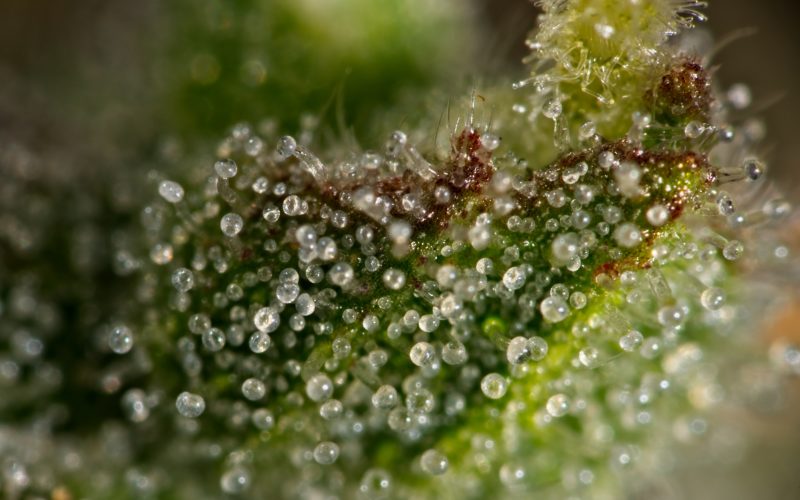Government
Fair Trials Calls for Global Justice for Victims of the War on Drugs

Criminal justice watchdog Fair Trials teams with Last Prisoner Project to launch justice campaign for victims of the Drug War—and calls on the industry to support it.
Fair Trials, a globally focused nongovernmental non-profit organization which campaigns for the right to a fair trial and against discrimination within justice systems is, along with the Last Prisoner Project, calling on the cannabis industry for action. They want to begin addressing the harm caused by cannabis prohibition—on a global basis—by working to free those jailed for cannabis possession and use.
Cannabis legalization may now be a reality in more and more countries across the globe. However, far too many people remain behind bars or continue to suffer directly from the war on the plant.
“The injustice of cannabis prohibition has resulted in millions of people worldwide serving time in prison or being saddled with a cannabis conviction, which brings with it a lifetime of harmful consequences, ranging from education and employment opportunities to immigration status and parental rights,” said Fair Trials Global CEO Norman L. Reimer.
“These harmful effects of prohibition not only impact the individuals charged, but also their families and communities. And those effects have been borne disproportionately by minorities, communities of colour, and the socio-economically disadvantaged. Legalising cannabis alone does not equal justice. Together, we must address the ongoing harms of past prohibition and leave no cannabis prisoner behind,” he said.
The campaign will be modeled on the American Cannabis Justice Initiative—a joint effort between the industry and volunteer lawyers.
The Terrible Impact of Unreformed Justice Systems
According to the ACLU, half of all American drug arrests in 2010 were for cannabis. Of the 8.2 million cannabis arrests between 2001 and 2010, 88% were for simple possession. While these numbers have dropped dramatically since then (according to NORML), several hundred thousand Americans are arrested in states where the drug is still outlawed to this day.
The problem of course is not confined to the U.S.
Even in Europe, which has a far more lenient policy towards all drug use and cannabis in particular, people still go to jail for the “crime” of both possession and home cultivation (even for medical use). In Germany, for example, cannabis is the number one “illicit” drug of choice and, of course, also accounts for the vast number of arrests. In Spain, the organizer of the club movement, Albert Tió, was prosecuted with jail time for his role in the same. However, here, like other places in the world, even the threat of prison does not deter users—and according to those who study the issue, it is not likely to in the future. Finland remains the E.U. state with the most people imprisoned for use.
Outside of the E.U., there are places where cannabis “crimes” are punished more harshly, including with life sentences or even the death penalty. Of these, most are in the “east” and Asia. Thailand in fact just made global news with the release of 4,200 prisoners in jail for cannabis (in conjunction with the implementation of federal liberalization policies). In other countries, reform has not happened yet—starting with China. Singapore and Malaysia have both been in the news over the last several years for sentencing people to death for possession. Last year, in the United Arab Emirates, a 25-year sentence was handed to a British soccer coach in possession of CBD oil.
The War on Drugs may finally be ending. But its terrible legacy still creates a dark overhang that shadows far too many people’s lives.
Source: https://hightimes.com/activism/fair-trials-calls-for-global-justice-for-victims-of-the-war-on-drugs/
Business
New Mexico cannabis operator fined, loses license for alleged BioTrack fraud

New Mexico regulators fined a cannabis operator nearly $300,000 and revoked its license after the company allegedly created fake reports in the state’s traceability software.
The New Mexico Cannabis Control Division (CCD) accused marijuana manufacturer and retailer Golden Roots of 11 violations, according to Albuquerque Business First.
Golden Roots operates the The Cannabis Revolution Dispensary.
The majority of the violations are related to the Albuquerque company’s improper use of BioTrack, which has been New Mexico’s track-and-trace vendor since 2015.
The CCD alleges Golden Roots reported marijuana production only two months after it had received its vertically integrated license, according to Albuquerque Business First.
Because cannabis takes longer than two months to be cultivated, the CCD was suspicious of the report.
After inspecting the company’s premises, the CCD alleged Golden Roots reported cultivation, transportation and sales in BioTrack but wasn’t able to provide officers who inspected the site evidence that the operator was cultivating cannabis.
In April, the CCD revoked Golden Roots’ license and issued a $10,000 fine, according to the news outlet.
The company requested a hearing, which the regulator scheduled for Sept. 1.
At the hearing, the CCD testified that the company’s dried-cannabis weights in BioTrack were suspicious because they didn’t seem to accurately reflect how much weight marijuana loses as it dries.
Company employees also poorly accounted for why they were making adjustments in the system of up to 24 pounds of cannabis, making comments such as “bad” or “mistake” in the software, Albuquerque Business First reported.
Golden Roots was fined $298,972.05 – the amount regulators allege the company made selling products that weren’t properly accounted for in BioTrack.
The CCD has been cracking down on cannabis operators accused of selling products procured from out-of-state or not grown legally:
- Regulators alleged in August that Albuquerque dispensary Sawmill Sweet Leaf sold out-of-state products and didn’t have a license for extraction.
- Paradise Exotics Distro lost its license in July after regulators alleged the company sold products made in California.
Golden Roots was the first alleged rulebreaker in New Mexico to be asked to pay a large fine.
Source: https://mjbizdaily.com/new-mexico-cannabis-operator-fined-loses-license-for-alleged-biotrack-fraud/
Business
Marijuana companies suing US attorney general in federal prohibition challenge

Four marijuana companies, including a multistate operator, have filed a lawsuit against U.S. Attorney General Merrick Garland in which they allege the federal MJ prohibition under the Controlled Substances Act is no longer constitutional.
According to the complaint, filed Thursday in U.S. District Court in Massachusetts, retailer Canna Provisions, Treevit delivery service CEO Gyasi Sellers, cultivator Wiseacre Farm and MSO Verano Holdings Corp. are all harmed by “the federal government’s unconstitutional ban on cultivating, manufacturing, distributing, or possessing intrastate marijuana.”
Verano is headquartered in Chicago but has operations in Massachusetts; the other three operators are based in Massachusetts.
The lawsuit seeks a ruling that the “Controlled Substances Act is unconstitutional as applied to the intrastate cultivation, manufacture, possession, and distribution of marijuana pursuant to state law.”
The companies want the case to go before the U.S. Supreme Court.
They hired prominent law firm Boies Schiller Flexner to represent them.
The New York-based firm’s principal is David Boies, whose former clients include Microsoft, former presidential candidate Al Gore and Elizabeth Holmes’ disgraced startup Theranos.
Similar challenges to the federal Controlled Substances Act (CSA) have failed.
One such challenge led to a landmark Supreme Court decision in 2005.
In Gonzalez vs. Raich, the highest court in the United States ruled in a 6-3 decision that the commerce clause of the U.S. Constitution gave Congress the power to outlaw marijuana federally, even though state laws allow the cultivation and sale of cannabis.
In the 18 years since that ruling, 23 states and the District of Columbia have legalized adult-use marijuana and the federal government has allowed a multibillion-dollar cannabis industry to thrive.
Since both Congress and the U.S. Department of Justice, currently headed by Garland, have declined to intervene in state-licensed marijuana markets, the key facts that led to the Supreme Court’s 2005 ruling “no longer apply,” Boies said in a statement Thursday.
“The Supreme Court has since made clear that the federal government lacks the authority to regulate purely intrastate commerce,” Boies said.
“Moreover, the facts on which those precedents are based are no longer true.”
Verano President Darren Weiss said in a statement the company is “prepared to bring this case all the way to the Supreme Court in order to align federal law with how Congress has acted for years.”
While the Biden administration’s push to reschedule marijuana would help solve marijuana operators’ federal tax woes, neither rescheduling nor modest Congressional reforms such as the SAFER Banking Act “solve the fundamental issue,” Weiss added.
“The application of the CSA to lawful state-run cannabis business is an unconstitutional overreach on state sovereignty that has led to decades of harm, failed businesses, lost jobs, and unsafe working conditions.”
Business
Alabama to make another attempt Dec. 1 to award medical cannabis licenses

Alabama regulators are targeting Dec. 1 to award the first batch of medical cannabis business licenses after the agency’s first two attempts were scrapped because of scoring errors and litigation.
The first licenses will be awarded to individual cultivators, delivery providers, processors, dispensaries and state testing labs, according to the Alabama Medical Cannabis Commission (AMCC).
Then, on Dec. 12, the AMCC will award licenses for vertically integrated operations, a designation set primarily for multistate operators.
Licenses are expected to be handed out 28 days after they have been awarded, so MMJ production could begin in early January, according to the Alabama Daily News.
That means MMJ products could be available for patients around early March, an AMCC spokesperson told the media outlet.
Regulators initially awarded 21 business licenses in June, only to void them after applicants alleged inconsistencies with how the applications were scored.
Then, in August, the state awarded 24 different licenses – 19 went to June recipients – only to reverse themselves again and scratch those licenses after spurned applicants filed lawsuits.
A state judge dismissed a lawsuit filed by Chicago-based MSO Verano Holdings Corp., but another lawsuit is pending.
Source: https://mjbizdaily.com/alabama-plans-to-award-medical-cannabis-licenses-dec-1/
-

 Business2 years ago
Business2 years agoPot Odor Does Not Justify Probable Cause for Vehicle Searches, Minnesota Court Affirms
-

 Business2 years ago
Business2 years agoNew Mexico cannabis operator fined, loses license for alleged BioTrack fraud
-

 Business2 years ago
Business2 years agoAlabama to make another attempt Dec. 1 to award medical cannabis licenses
-

 Business2 years ago
Business2 years agoWashington State Pays Out $9.4 Million in Refunds Relating to Drug Convictions
-

 Business2 years ago
Business2 years agoMarijuana companies suing US attorney general in federal prohibition challenge
-

 Business2 years ago
Business2 years agoLegal Marijuana Handed A Nothing Burger From NY State
-

 Business2 years ago
Business2 years agoCan Cannabis Help Seasonal Depression
-

 Blogs2 years ago
Blogs2 years agoCannabis Art Is Flourishing On Etsy













